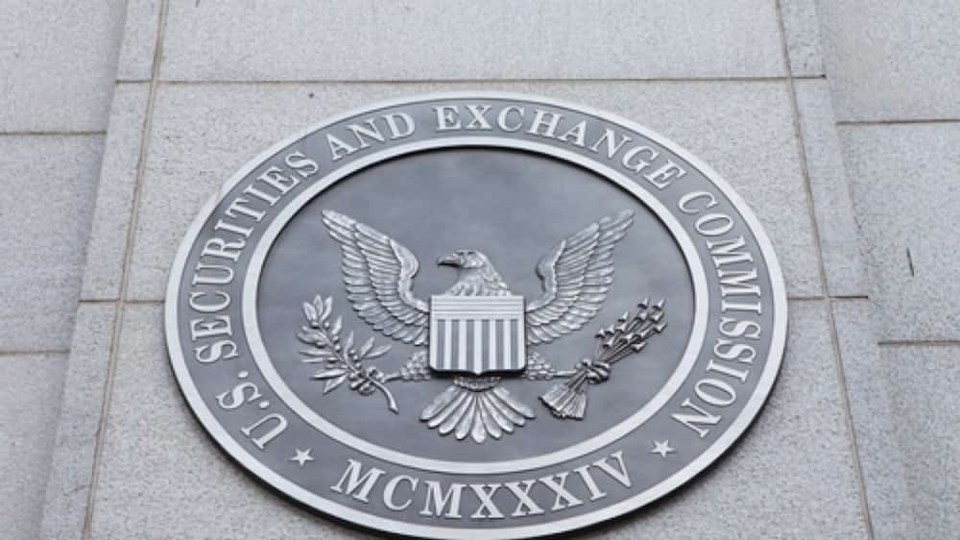Â鶹´«Ã½Ó³»lawyer Faiyaz Dean has had his practice – but not suspended or banned – by the Law Society of B.C. after a United States court ruled in late November he violated securities laws in relation to a pump and dump scheme and expelled him from penny stock trading.
Dean, 41, is also facing criminal charges from the U.S. Department of Justice in Arizona, where the scheme targeted retail investors.
A Law Society investigation is now ongoing for Dean’s “U.S. securities-related matters,” confirmed spokesperson David Jordan, who said although the society could have sought an interim suspension, Dean voluntarily restricted his practice from work related to securities and cryptocurrency.
On November 25, Judge Kevin Castel of the Southern District of New York issued a default judgement against Dean, who appears not to have put forth a defence for himself. Dean was also issued a civil penalty of $160,000. Dean, who also practices law in Washington State, did not respond to a request for comment from Glacier Media.
Dean graduated from Seattle University School of Law in 2003. In 2009, he was the subject of a series of Â鶹´«Ã½Ó³»Sun articles by now-retired columnist David Baines who foretold the numerous Russian- and Ukrainian-run shell companies Dean was setting up were “perfect vehicles for future ‘pump and dump’ stock schemes.” Prior to being called to the bar in February 2009, Dean articled as a lawyer with Vancouver’s Bacchus Law Group, founded by Â鶹´«Ã½Ó³»stock promoter and lawyer Penny Green (now Penny White).
Dean went on to set up his own firm, Dean Law Corp., in Seattle and Vancouver, where he specializes in setting up IPOs and reverse mergers for junior start-up companies.
The default judgment stems from a May 15, 2018 in which the U.S. Securities and Exchange Commission alleged Dean and others “engaged in a fraudulent scheme to effect illegal, unregistered sales of and manipulate the market for shares of the micro-cap company Biozoom, Inc.”
The SEC determined the 2013 pump and dump generated $34 million in illicit profits by selling stock to retail investors at inflated prices. The SEC in 2018 it was able to locate $16 million in U.S. accounts and return it to harmed investors.
The SEC claim stated how Dean provided the necessary legal framework for the scheme as he helped conceal the beneficial ownership of stock held by the so-called “masterminds” of the scheme, Francisco Abellan Villena and Guillermo Ciupiak. Dean also helped create bank and brokerage accounts in the names of nominees that were used to sell Biozoom shares. Accounts were located in Belize, Cyprus, St.Vincent and the British Virgin Islands. Central to the scheme was how Dean set up a shell company with 59.7 million shares that later became Biozoom.
“Months before Abellan and Ciupiak artificially created the appearance of demand
for Biozoom stock, they had Dean arrange to acquire for them all of the shares of an inactive shell company and to hide Abellan and Ciupiak’s control of these shares by placing them in the names of Argentine nationals.”
In 2015 the SEC won judgments against the eight Argentine nominees, who were also fined $160,000 each.
Abellan and Ciupiak also controlled the Argentine nominees bank and brokerage accounts. Dean, according to the SEC, facilitated an unregistered distribution of shares of the shell by falsifying transaction documents to hide the fact that about 20 million of the 59.7 million acquired shares could not be freely re-sold.
A subsidiary of the shell company merged with a German biomedical company, thus creating Biozoom. As a result, Abellan and Ciupiak’s shares in the shell company became Biozoom shares, trading on the Over-the-Counter Bulletin Board.
The masterminds then “artificially created the appearance of demand for Biozoom stock,” which they then sold via the nominees by using their own, as well as Dean’s, network of brokers and traders, according to the SEC.
The masterminds “organized an elaborate online, print and radio promotional campaign that coincided with the manipulative trading,” stated the SEC. For instance, more than seven million copies of mailers about the stock were printed and disseminated from a Scottsdale, Arizona print broker. One radio campaign aired on the Rush Limbaugh Show. Ads were taken out in the Los Angeles Times and Chicago Tribune.
During 11 trading days from June 10-24, 2013, just over 77 million shares changed hands and the share price nearly doubled. As the Argentine nominees liquidated their stock, some switched to buying “to provide price support,” the SEC claimed.
From May 16, 2013, to June 19, 2013, Biozoom’s share price went from $1.10 per share to $4.50 per share.
“Abellan and Ciupiak had already caused the other approximately $17 million of proceeds of the fraud to be wired to offshore accounts they controlled,” stated the SEC claim.
The SEC case mirrors that of a against Dean and Abellan, as well as James Panther Jr., who is alleged to have “exercised influence and/or control over corporate entities used in furtherance of the scheme.”
The trio is charged with: conspiracy to commit securities fraud and wire fraud; securities fraud; conspiracy to commit money laundering; and money laundering.
These criminal allegations have not been proven in court.
Law Society rules state the executive director may seek an interim suspension or restrictions on a lawyer’s practice in order to protect the public pending the outcome of an investigation, stated spokesperson Jordan. However, “in this instance, Mr. Dean provided a voluntary undertaking to restrict his practice.”



